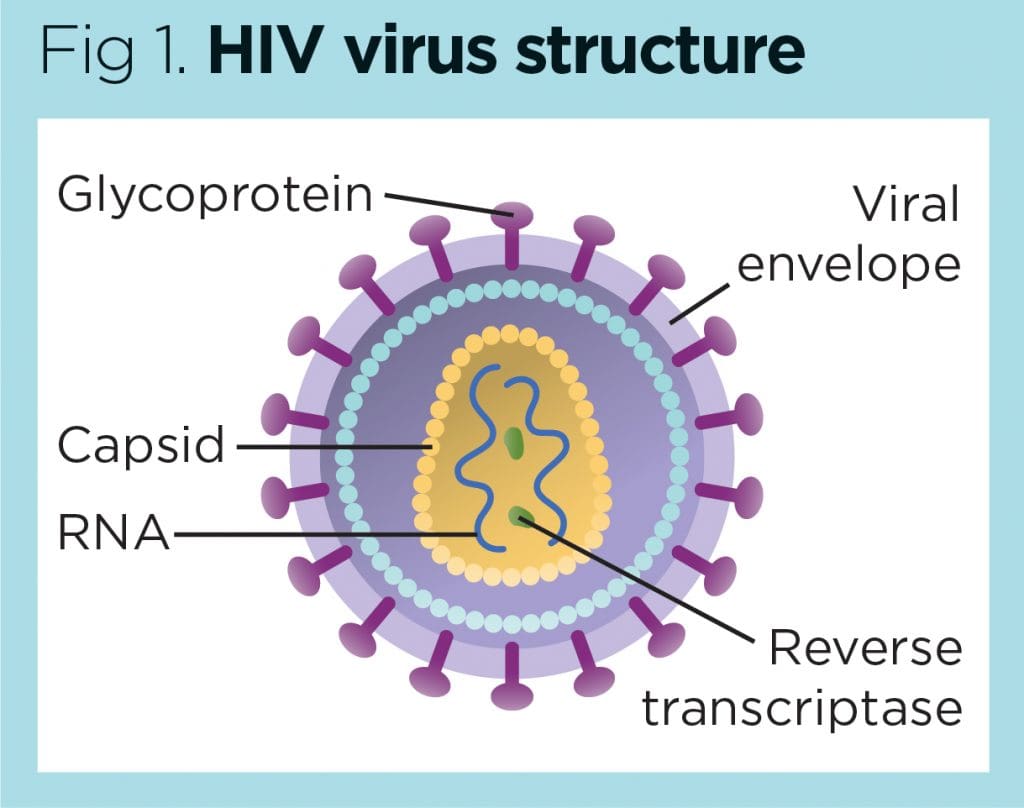How do healthcare professionals provide a clinical approach to recognizing HIV for individuals in pain and providing relief?
Table of Contents
Introduction
The human body has dealt with various environmental factors, injuries, and pathogens that can cause issues to the body system. As many individuals are always on the go from one location to another, being healthy is extremely important. Making time to make an appointment for a person’s health and well-being is extremely important, as many people have experienced comorbidities and overlapping risk profiles that are causing them pain. When individuals experience onset issues of fatigue, muscle and joint pain, or immune disorders, many healthcare professionals must assess the situation and ask the individuals when they experienced these overlapping risk profiles and how they affect their daily activities. One of the overlapping risk profiles that seems to affect the body is a viral infection known as Human Immunodeficiency Virus or HIV. This can get many healthcare professionals to come up with a personalized treatment plan to reduce these overlapping risk profiles and educate the individual on what to do to manage HIV symptoms. Today’s article looks at how HIV can impact a person, their symptoms, and non-surgical treatments to manage HIV. We discuss with certified associated medical providers who consolidate our patients’ information to assess the effects of HIV and its associated symptoms. We also inform and guide patients on how to be aware of the impact of HIV and ask their associated medical providers intricate questions to integrate a customized treatment plan to incorporate multiple non-surgical therapies to manage the symptoms. Dr. Jimenez, D.C., includes this information as an academic service. Disclaimer.
What Is HIV?
Do you constantly feel tired even after taking a good night’s rest? Do you feel your throat being sore without the flu symptoms? Or are you experiencing muscle and joint pain in different locations of your body? Worldwide, many individuals have often experienced these symptoms from a viral infection known as Human Immunodeficiency Virus or HIV. HIV belongs to the retroviridae family, which targets the body’s immune system, especially the CD4+ T cells. The CD4+T cells play an important role in the body’s immune response, but when HIV starts to deplete the receptors and terminate the host cells. (Masenga et al., 2023) This causes individuals to have acute stages of HIV and, if not treated immediately, can lead to the progression of severe stages. However, how do individuals contract HIV? Well, the most common mode is through unprotected sexual intercourse, sharing needles, or through maternal-infant exposure, which diminishes the T-helper cell population and, over time, can increasingly weaken the immune system. (van Heuvel et al., 2022) This causes many individuals to develop various symptoms from HIV that can vary, depending on the severity and the progression stages of the virus.
The Symptoms
Now, for the progression of HIV to infect the body’s immune system and cause various symptoms to affect the individual, many healthcare professionals have to look at the process of the host’s exosomes and their correlation role with HIV. The generational process of exosomes causes overlapping risk profiles with the viral assembly of HIV as exosomes can transport the virus from the infected cells to the uninfected cells of the body by helping it regulate the host’s immune response to the virus infection. (Chen et al., 2021) To that point, it can lead to the progression of several stages of HIV and its associated symptoms. When a person is dealing with an HIV infection in its acute stages, the symptoms can be mild and easily mistaken for a common viral infection. Some of the symptoms can include:
- Muscle aches
- Joint pain
- Difficulty falling asleep
- Fatigue
- Neuropathy
- Shortness of breath
- Swollen glands
This is because the inflammatory cytokines from the immune system are heightened and influenced by HIV. When inflammatory cytokines become associated with HIV, symptoms have a huge impact on an individual’s life, causing them to be miserable. (Schnall et al., 2020) Additionally, when HIV is in a clinical latency stage, the virus is less active but can still replicate without exhibiting any symptoms in the body. However, when HIV progresses to its severe stage, it can lead to the development of AIDS. Luckily, treatment advancements to treat HIV from its acute stages can help manage the associated symptoms.
The Non-Surgical Approach To Wellness- Video
Non-Surgical Treatments For HIV
When it comes to treating HIV, non-surgical treatments can help manage its associated symptoms while dramatically improving the life expectancy and quality of life of the individual who is affected by the virus. For non-surgical treatments, the main goal is to diagnose HIV as early as possible and to assess the situation by coming up with new and innovative HIV testing initiatives to increase the frequency and prevention of HIV in both clinical and non-clinical settings. (Delaney & DiNenno, 2021) Below are some non-surgical treatments to manage HIV.
Antiretroviral Treatments
Now, some of the non-surgical treatments to manage HIV is by taking antiretroviral therapy. This allows the individual with HIV to be more mindful of taking antiretroviral medications daily, which then helps improve sustained viral suppression of HIV and provides effective strategies of therapeutic approaches to enhance antiretroviral activities. (Huerta, 2020) Additionally, the primary goal of antiretroviral therapy is to reduce the HIV load to an undetectable level, keep the immune system functioning, and prevent the progression development of AIDS.
Lifestyle Adjustments
While living with HIV today is vastly different from decades past, thanks to significant medical advancements. Many individuals can go to their healthcare providers for an early diagnosis and effective treatment to live long and healthy lives. Awareness, education, and staying proactive with health checks remain key in the fight against HIV and its progression. Additionally, proper nutrition, regular exercise, and mental health support are also crucial for people living with HIV, helping to boost the immune system and manage symptoms. At the same time, regular visits to a healthcare provider for blood tests are essential to monitor the effectiveness of ART and adjust the treatment regimen as needed to live a healthier life.
References
Chen, J., Li, C., Li, R., Chen, H., Chen, D., & Li, W. (2021). Exosomes in HIV infection. Curr Opin HIV AIDS, 16(5), 262-270. doi.org/10.1097/COH.0000000000000694
Delaney, K. P., & DiNenno, E. A. (2021). HIV Testing Strategies for Health Departments to End the Epidemic in the U.S. Am J Prev Med, 61(5 Suppl 1), S6-S15. doi.org/10.1016/j.amepre.2021.06.002
Huerta, L. (2020). Editorial: Anti-infective 2020: HIV-From pathogenesis to treatment. Curr Opin Pharmacol, 54, x-xii. doi.org/10.1016/j.coph.2020.12.001
Masenga, S. K., Mweene, B. C., Luwaya, E., Muchaili, L., Chona, M., & Kirabo, A. (2023). HIV-Host Cell Interactions. Cells, 12(10). doi.org/10.3390/cells12101351
Schnall, R., Jia, H., & Reame, N. (2020). Association Between HIV Symptom Burden and Inflammatory Cytokines: An Analysis by Sex and Menopause Stage. J Womens Health (Larchmt), 29(1), 119-127. doi.org/10.1089/jwh.2019.7749
van Heuvel, Y., Schatz, S., Rosengarten, J. F., & Stitz, J. (2022). Infectious RNA: Human Immunodeficiency Virus (HIV) Biology, Therapeutic Intervention, and the Quest for a Vaccine. Toxins (Basel), 14(2). doi.org/10.3390/toxins14020138
Disclaimer
Post Disclaimer
Professional Scope of Practice *
The information herein on "Recognizing HIV: A Clinical Approach for Medical Professionals" is not intended to replace a one-on-one relationship with a qualified health care professional or licensed physician and is not medical advice. We encourage you to make healthcare decisions based on your research and partnership with a qualified healthcare professional.
Blog Information & Scope Discussions
Our information scope is limited to Chiropractic, musculoskeletal, physical medicines, wellness, contributing etiological viscerosomatic disturbances within clinical presentations, associated somatovisceral reflex clinical dynamics, subluxation complexes, sensitive health issues, and/or functional medicine articles, topics, and discussions.
We provide and present clinical collaboration with specialists from various disciplines. Each specialist is governed by their professional scope of practice and their jurisdiction of licensure. We use functional health & wellness protocols to treat and support care for the injuries or disorders of the musculoskeletal system.
Our videos, posts, topics, subjects, and insights cover clinical matters, issues, and topics that relate to and directly or indirectly support our clinical scope of practice.*
Our office has reasonably attempted to provide supportive citations and has identified the relevant research study or studies supporting our posts. We provide copies of supporting research studies available to regulatory boards and the public upon request.
We understand that we cover matters that require an additional explanation of how it may assist in a particular care plan or treatment protocol; therefore, to further discuss the subject matter above, please feel free to ask Dr. Alex Jimenez, DC, or contact us at 915-850-0900.
We are here to help you and your family.
Blessings
Dr. Alex Jimenez DC, MSACP, RN*, CCST, IFMCP*, CIFM*, ATN*
email: coach@elpasofunctionalmedicine.com
Licensed as a Doctor of Chiropractic (DC) in Texas & New Mexico*
Texas DC License # TX5807, New Mexico DC License # NM-DC2182
Licensed as a Registered Nurse (RN*) in Florida
Florida License RN License # RN9617241 (Control No. 3558029)
License Compact Status: Multi-State License: Authorized to Practice in 40 States*
Presently Matriculated: ICHS: MSN* FNP (Family Nurse Practitioner Program)
Dr. Alex Jimenez DC, MSACP, RN* CIFM*, IFMCP*, ATN*, CCST
My Digital Business Card



